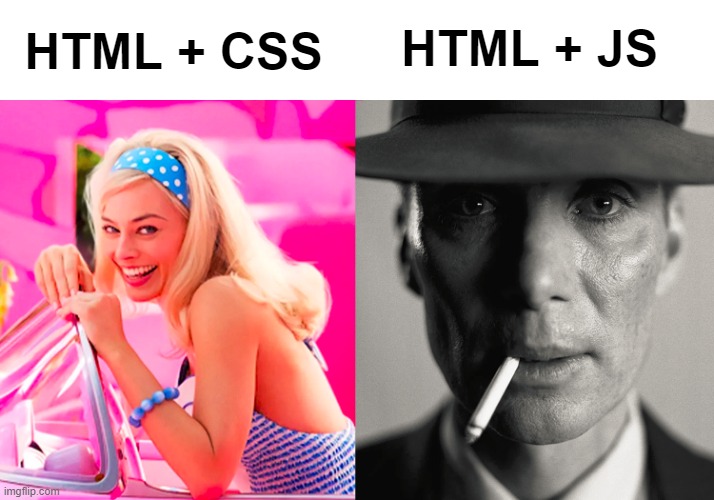this post was submitted on 14 Aug 2023
608 points (92.6% liked)
Programmer Humor
32822 readers
297 users here now
Post funny things about programming here! (Or just rant about your favourite programming language.)
Rules:
- Posts must be relevant to programming, programmers, or computer science.
- No NSFW content.
- Jokes must be in good taste. No hate speech, bigotry, etc.
founded 5 years ago
MODERATORS
you are viewing a single comment's thread
view the rest of the comments
view the rest of the comments

Is this some highly sophisticated programmer humor that I'm too tech-illiterate to understand?
JS bad, please clap
👏
👏👏
👏👏👏
👏👏👏👏
👏👏👏👏👏
Little diddy bout Jack and Diane
The real question is since when CSS is good?
ITs NoT StRoNgLy TyPeD aNd Is ThErEfOrE gArBaGe
Give me one advantage of language that isn't strongly typed
Fluent polymorphism via duck typing. It's useful when you're treating objects as a collection of properties, and therefore it's not their type that matters but which properties they have. Types can still be used to label common collections of properties but it's less painful to talk about objects that are "like an X but with/without certain properties," or where some properties themselves have a different shape, etc. This is applicable to web APIs, not just because of JSON, but because it allows to define both very rigid and very flexible schemas without much overhead or repetition. See the OpenAPI specification.
It's not a debate I care to have, I just think it's funny that people want to build websites but hate how websites are built.
CSS is used to create the design, basically the look (colors, layout and so on), but no substance.
JavaScript is used to implement code and logic.
HTML + JavaScript would typically (since you're supposed to use CSS to create colors and design) look very dull, thus the black-and-white Oppenheimer.
document.querySelector('.whatever').style.color = "red";Don't recommend, though.
Sure, but setting the .style attribute could really be argued as using CSS, just with a different interface. W3Schools refers to this as "inline CSS".